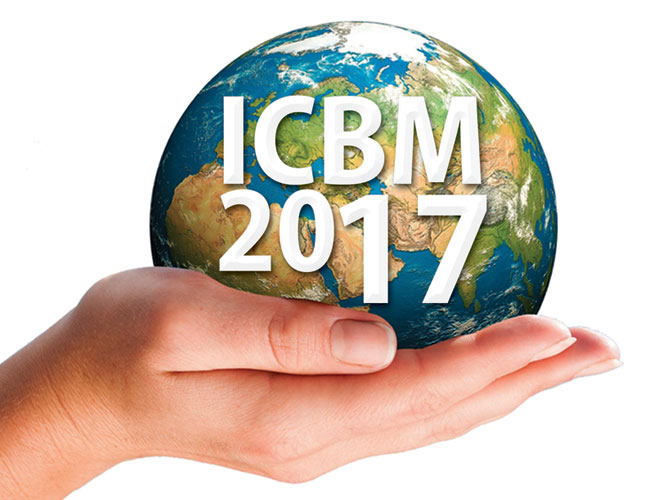International Conference on Business Management (ICBM), an annual research conference organized by the Faculty of Management Studies and Commerce, University of Sri Jayewardenepura, will be held today (8), at Hotel Taj Samudra, Colombo. (Grand Marquee).
The research conference will be held from 8.00 am to 4.15 pm and the Business Forum would be held from 5.00 p.m.to 7.30 p.m, said . Dr. Chandana Gunathilaka, Co-Chair, International Conference on Business Management Department of Finance, University of Sri Jayewardenepura.
ICBM 2017 event is a much looked forward to event and is rich with world class academics and industry experts.
Professor Patrick Mendis, Harvard University, talks on innovation. Innovations and creativity goes in a particular interface, organizations has a balance between creativity, brain drain, and intellectual property rights. It requires resilience and focus on sustainable growth. Professor is an alumnus of Sri Jayewardenepura University, and a proud product of Faculty of Management Studies and Commerce.
Professor Evan Lau, University of Malaysia Sarawak, will talk about managing interface in the digital era.
He is the managing editor of the International Journal of Business and Society, an indexed (SCOPUS) and ranked business journal. He is an award winning scholar, with many publications. I am equally proud to have him on stage at ICBM 2017.
Additionally, an excellent author Professor N.C. Narayanan will also join ICBM 2017. He is popular as a Transformation Catalyst and a global business consultant. His recent McGowHill book ‘Pragmatic Leadership’ has been well received by the readership. I am honored to have him at our stage too.
University academics apportion a significant fraction of their resources on research and attending research conferences. They organize such conferences with an objective of knowledge dissemination, the research outcomes are not something just left at the shelf at the library.
Co-Chair, International Conference on Business Management, Department of Finance, University of Sri Jayewardenepura, Dr. Chandana Gunathilaka has issued the following message for the event.
CBM 2017 goes with a topical theme, “Managing Interface: Corporate Resilience and Growth Potential”.
Dictionary defines interface as a surface regarded as the common boundary of two bodies, spaces, or phases; the facts, problems, considerations, theories, practices and shared by two or more disciplines, procedures, or fields of study; a common boundary or interconnection between systems, equipment, concepts, or human beings.
We face many different interfaces, it is full of interfaces in our life! You handle your buying behavior of household items, how much your buying decision is influenced by media advertisements? An advertisement makes a connection between you and the product or service they talk. The television makes connections, differentiations and separations between you and some people, products, or politicians. You deal with your employer and your success (i.e. strength of connection or separation) depends on how you deal with employer.
Similar to this, within the business boundaries today, there are many interfaces to be involved. Other than short term interfaces like the boundary between customer and business, organization and other organizations, insiders and outsiders, employees and employers, there are interfaces between long term growth objectives and sustainability. Public organizations use public money and there arises an interface between managers and investors objectives.
Manufacturers should care production and environmental damages. Among many, interfaces also arise between customers and firm; markets and culture; new knowledge and applications; within technology management; goals of the firm and national goals; inter-organizational networks and many more.
Thus, what is the role of a manager, consultant, advisers and scholars in managing these complex interfaces? One should note that the management here does not mean controlling. Managing here refers to administration of an interface, a situation, an interconnection, or interstitial space to optimize the benefits possible.
When it come to higher level business management, it is significant to understand that the size, time horizon, level of risk, gravity and profitability of different interfaces determine the organization’s sustainable growth. Information flow to and from organization, crossing all the boundaries, are at unprecedented rates today. The power of social networks can never be undermined; these demand multiple strategies in managing.
The characteristics of dynamics are of course show a non-linear form. It demands us to re-think whether we need to define our missions, policies and appear as a separate entity from all others! Because it can mean we are not willing to connect with others in the wider span of interstitial space.
For instance, one of the six objectives of a public trading company is “Grow our Revenue and Profits at a rate above the current Industry Norm”. So now, the company has defined its separation at the interface for community expectations from a Sri Lanka’s business unit. Community may require a company to align with national objectives. Should a company think to lead their industry at the expense our small market and customer?
This objective means that the company sells however more than the other companies in the industry do. Instead, it can lead at least Asian market, lead in technology, and draw revenue from sources that are beyond boundaries.
It can interact with community objectives, not the profit rate, and design objectives so that it reduces the cost of separation. On the other hand, this objective creates another interface, where a discussion requires on ‘how accountable should organizations be for the economic and social consequences of their actions at the interface?’



Add new comment